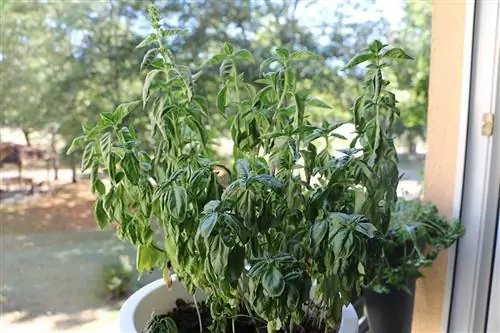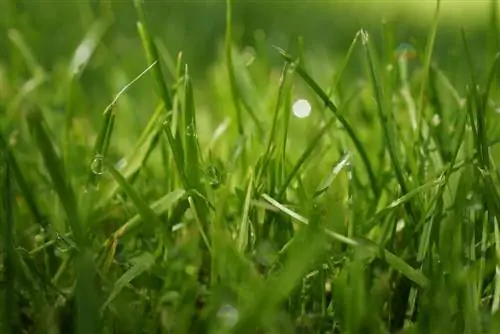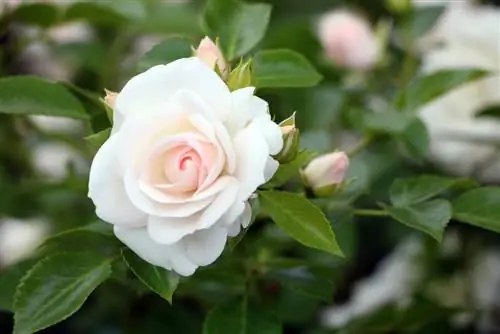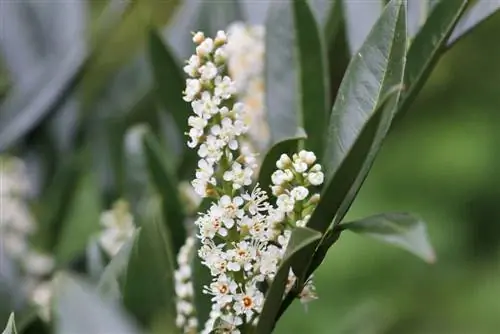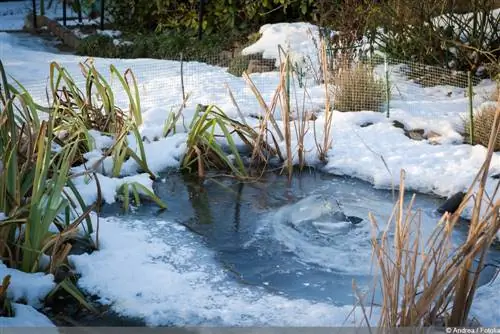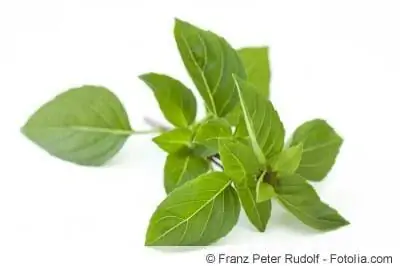- Author admin caroline@plants-knowledge.com.
- Public 2023-12-17 03:39.
- Last modified 2025-06-01 06:48.
Basil plants are not hardy, but with a little skill they can be overwintered. We'll give you 7 valuable tips to help you get the popular herb plant through the winter safely.
Variety
The choice of basil variety has a decisive influence on the chances of successful overwintering, as some varieties are better suited to this than others. Overwintering annual varieties and plants from the supermarket is not very promising. That's why it's worth only overwintering more robust specimens. These include, among others, the following types of basil:
- Green-leaved African B. ‘African Green’
- Garden-B.
- Red-Blue African B. 'African Blue'
- African tree basil
Pot | Transplanting
If you want to overwinter basil plants, you must definitely bring them indoors. Basil is not hardy and would not survive the winter months outdoors. It is therefore advisable to take the plant out of the vegetable patch and put it in a pot. There are a few things to consider here too:
- Pot size at least 20 cm diameter
- Create drainage
- Expanded clay or gravel (grain size 8 -16 mm)
- Cut garden fleece and place over drainage
Substrate
There are also a few things to consider when choosing the right substrate: Ordinary herb soil is not recommended because it is too lean. Potting soil or potting soil is more suitable. Because it has the optimal properties to survive the winter months in the best possible way. These include, among others, the following features:
- Nutrient Rich
- Humos
- Fresh
- Wet
- Well drained
- pH value: 6.5-7.5
Location
So that the basil feels comfortable even in winter, it should be placed in a location that is as bright as possible. A south-facing window sill is particularly suitable for this. However, it is important to ensure that the location is draft-free. Leaks should therefore be repaired in a timely manner using appropriate measures. Alternatively, the herb plant can also spend the cold season in the winter garden. In any case, the winter quarters should have the following characteristics:
- sunny and bright
- provide artificial light if necessary
- Temperature between 15 - 20 degrees
- both during the day and at night
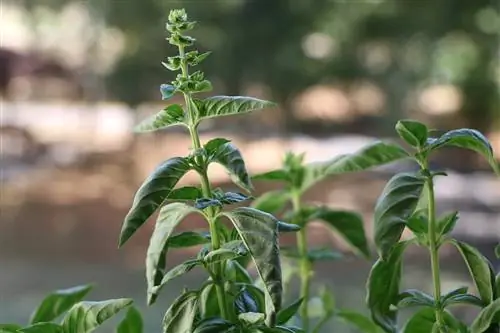
It is possible to overwinter basil at temperatures between 10 and 12 degrees, but the plant stops growing. If that doesn't bother you, you can look forward to the lower maintenance costs. Because in this case it doesn't need to be watered or fertilized.
Fertilize
The supply of nutrients in the pot is significantly more limited than in the vegetable patch, which is why the herb plant should be fertilized regularly. An organic long-term fertilizer is best suited for this, such as herbal fertilizer or nettle manure. The plant should be fertilized every four to six weeks over the winter.
Pouring
The basil should be watered as regularly as possible so that the soil is always moist. However, waterlogging should be avoided in any case. There are also a few things to consider when casting:
- always pour on the ground
- or pour over the trivet
- or dip root ball in bucket of water
Note:
If the plant lets its leaves hang limply, it doesn't have enough water and should definitely be watered!
Cutting
Cutting during winter time is not necessary. But if you want, you can also harvest the herbs in winter. It is recommended to cut off the shoots by about 5 centimeters, as this stimulates growth.

